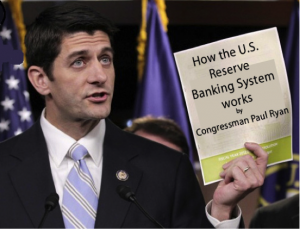By J.D. Alt
1. Why we can afford it—2. Why we need it—3. How we can build it
2. Why we need it.
What is retirement anyway? For most people it seems to be the end of that middle period of their lives where some business, or institution, or civic entity has paid them Dollars in exchange for their labor or personal services. This “Dollar-earning-in-exchange-for-work” period can end at various points in a life-span, for various reasons planned or unplanned: Some of us become disabled by health catastrophes in our 40s or 50s, some find the particular skill we learned or developed over the years is suddenly no longer in demand (and it’s much too late to start over again). Many people are forced to stop providing their labor or services at a certain age by retirement rules designed to create employment openings for the younger generation coming along behind. While a few are fortunate enough to continue earning Dollars in exchange for their services right up until the very end—entertainers, writers, highly specialized professionals come to mind—the vast majority of U.S. citizens all share the same basic fate: at some point in time, with many years or even decades remaining in our life-span, we will cease earning Dollars in exchange for our labor or services.


 I’d like to propose an Essay Contest that might inform us better than any news talk show or presidential debate what we’re up against with our National Budget—and what might be the best course of action we should consider. Everyone in Congress should be required to participate, governors and state legislators who might become future congressional leaders should be encouraged to join in, and op-ed economic analysts invited to submit. The essays would be posted on a Congressional website established specifically to enable the public to vote on the best explanation of the topic. The topic I propose is this:
I’d like to propose an Essay Contest that might inform us better than any news talk show or presidential debate what we’re up against with our National Budget—and what might be the best course of action we should consider. Everyone in Congress should be required to participate, governors and state legislators who might become future congressional leaders should be encouraged to join in, and op-ed economic analysts invited to submit. The essays would be posted on a Congressional website established specifically to enable the public to vote on the best explanation of the topic. The topic I propose is this:
 In an earlier essay I suggested we just forget the 1%. This was an idea not entirely supported by the commentary that followed. On reflection, I’ve decided it isn’t the right approach after all. What we really need to do is rescue the 1%.
In an earlier essay I suggested we just forget the 1%. This was an idea not entirely supported by the commentary that followed. On reflection, I’ve decided it isn’t the right approach after all. What we really need to do is rescue the 1%. Trying your best to balance the Federal Budget with a limited number of Tax Dollars—and doing so while visibly displaying great compassion for your fellow citizens in the hope they might reelect you—requires some very special thinking skills. These unique skills of rational analysis and gentle compassion were on display recently when Congressman Paul Ryan gave a speech to the Conservative Political Action Conference laying the ground work for his forthcoming efforts to cut the deficit by “reforming” the welfare system.
Trying your best to balance the Federal Budget with a limited number of Tax Dollars—and doing so while visibly displaying great compassion for your fellow citizens in the hope they might reelect you—requires some very special thinking skills. These unique skills of rational analysis and gentle compassion were on display recently when Congressman Paul Ryan gave a speech to the Conservative Political Action Conference laying the ground work for his forthcoming efforts to cut the deficit by “reforming” the welfare system.








